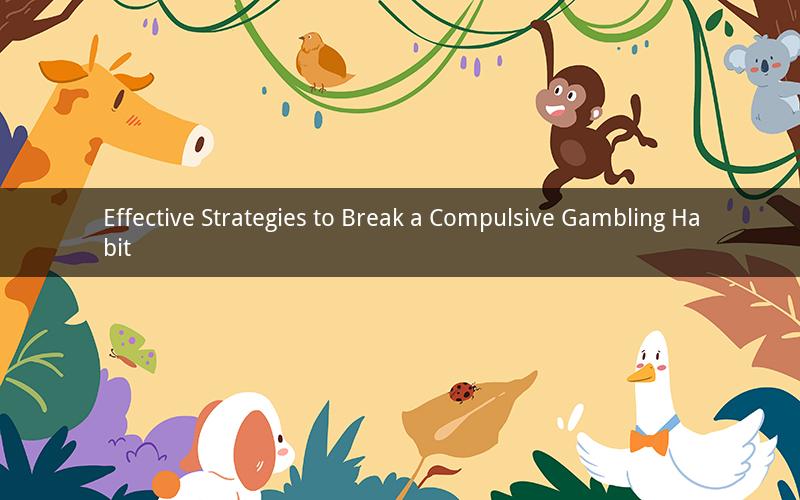
Introduction:
Gambling addiction is a significant issue affecting millions of individuals worldwide. The allure of winning big and the thrill of taking risks can lead to uncontrollable gambling habits. However, breaking free from this addiction is crucial for one's financial, emotional, and mental well-being. In this article, we will explore various effective strategies to help individuals break a gambling habit.
1. Identify the Underlying Causes:
Understanding the root causes of your gambling addiction is the first step towards overcoming it. Some common reasons include seeking excitement, escaping reality, or coping with stress. Reflect on your personal triggers and address them accordingly.
2. Seek Professional Help:
Consulting a mental health professional, such as a therapist or counselor, can be highly beneficial. They can provide personalized guidance, support, and coping strategies tailored to your specific needs. Therapy techniques like cognitive-behavioral therapy (CBT) can help you identify and change negative thought patterns associated with gambling.
3. Create a Support System:
Surround yourself with individuals who understand your struggles and offer support. This can include friends, family members, or support groups specifically designed for gambling addiction. Sharing your experiences and receiving encouragement from others can significantly enhance your chances of overcoming the habit.
4. Develop a Financial Plan:
Gambling addiction often leads to severe financial consequences. To break the habit, it is crucial to establish a financial plan that includes budgeting, setting limits, and seeking financial counseling if necessary. Consider seeking help from a financial advisor or counselor to regain control over your finances.
5. Replace Gambling with Healthy Alternatives:
Finding alternative activities to replace gambling can be a powerful tool in breaking the habit. Engage in hobbies, exercise, or other interests that provide fulfillment and enjoyment. This will help distract you from the urge to gamble and promote a healthier lifestyle.
6. Set Clear Goals and Boundaries:
Establish clear, achievable goals to guide your journey towards breaking the gambling habit. Set specific timeframes and milestones to measure your progress. Additionally, set strict boundaries regarding gambling, such as avoiding certain venues or limiting the amount of time spent online.
7. Use Self-Exclusion Programs:
Many casinos and online gambling platforms offer self-exclusion programs. These programs allow you to ban yourself from certain gambling establishments or websites for a specified period. Utilize these resources to create physical and digital barriers to prevent access to gambling.
8. Practice Mindfulness and Stress Management:
Mindfulness techniques, such as meditation and deep breathing exercises, can help you stay grounded and focused. By managing stress effectively, you can reduce the urge to turn to gambling as a coping mechanism. Explore stress management techniques that work for you and incorporate them into your daily routine.
9. Monitor Your Progress:
Regularly assess your progress and celebrate small victories along the way. Reflect on the challenges you have overcome and the positive changes you have made. This will help maintain motivation and reinforce your commitment to breaking the gambling habit.
10. Stay Committed:
Breaking a gambling habit is a long-term process that requires dedication and perseverance. Stay committed to your goals and remind yourself of the reasons why you want to overcome this addiction. Remember that setbacks are a part of the journey, but they do not define your ability to succeed.
FAQs:
Q1: How long does it take to break a gambling habit?
A1: The duration of overcoming a gambling habit varies from person to person. Some individuals may experience success within a few months, while others may require several years of consistent effort.
Q2: Can I overcome a gambling habit on my own?
A2: While it is possible to overcome a gambling habit on your own, seeking professional help and joining support groups can significantly enhance your chances of success.
Q3: Is there a medication that can help with gambling addiction?
A3: Currently, there is no medication specifically designed to treat gambling addiction. However, some medications may help manage co-occurring mental health disorders that contribute to the addiction.
Q4: Can I gamble responsibly?
A4: Responsible gambling is challenging for individuals with a gambling addiction. It is generally recommended to avoid gambling altogether until you have successfully overcome the addiction.
Q5: What if I relapse?
A5: Relapse is a common occurrence in the journey towards overcoming a gambling habit. If you experience a setback, do not be discouraged. Analyze the triggers that led to the relapse and seek support to help you bounce back and continue your progress.